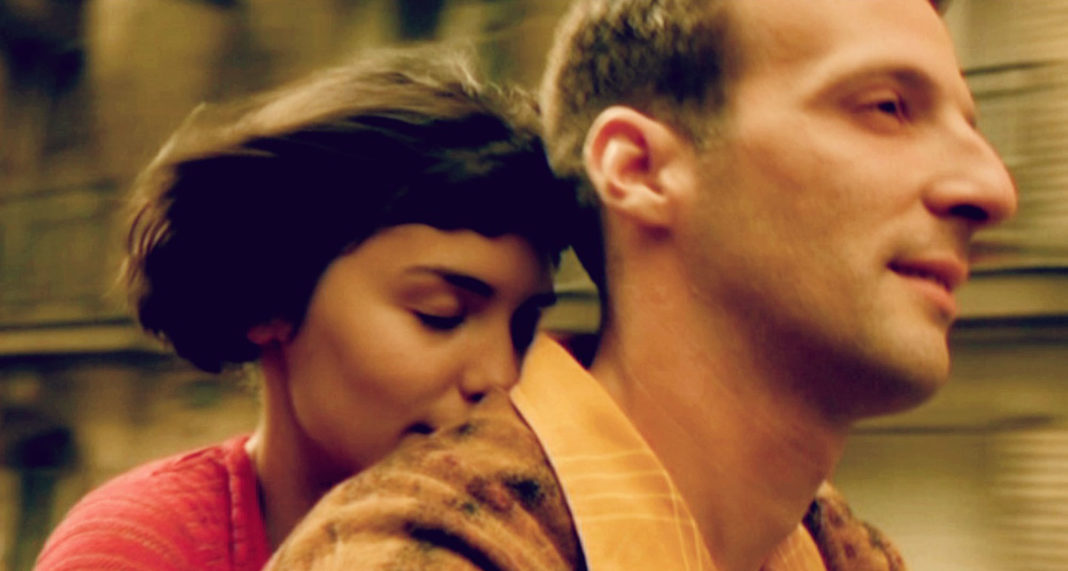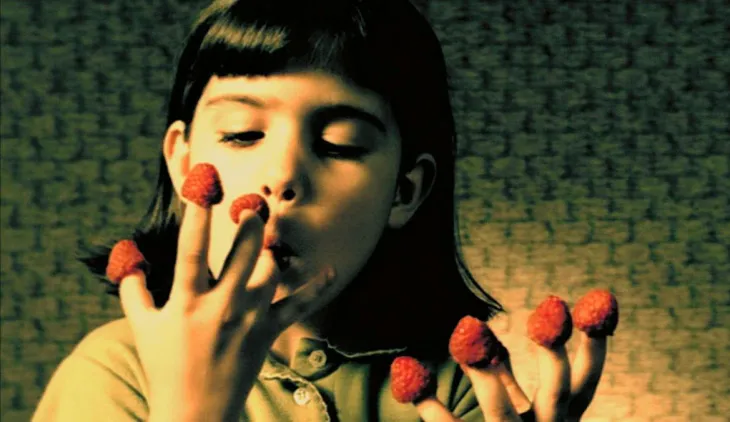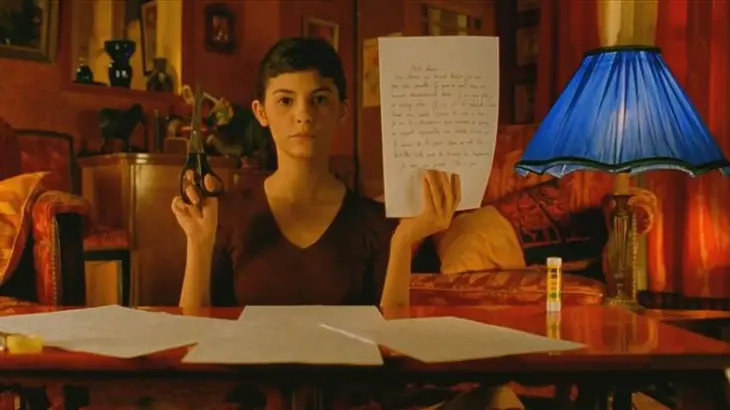Amélie (2001)

Chaos and Chuckles: Amélie Unleashes Jeunet’s Whimsical Paris
Amélie, released May 25, 2001, in France (and later worldwide) by UGC Fox Distribution, is a $10 million confection that grossed over $174 million globally, a triumph for Jean-Pierre Jeunet’s singular vision. Audrey Tautou stars as Amélie Poulain, a shy Parisian waitress who, after a childhood of isolation—her mother killed by a falling tourist, her father (Rufus) fixated on a garden gnome—finds purpose in secret acts of kindness. Sparked by discovering a boy’s treasure box behind her Montmartre flat’s wall on Princess Diana’s death day (August 31, 1997), she embarks on a chaotic quest to fix lives—returning the box, nudging a hypochondriac (Lorella Cravotta), matchmaking a coworker (Isabelle Nanty). Her own heart tugs toward Nino (Mathieu Kassovitz), a quirky porn-shop clerk collecting discarded photo-booth snaps.
Jeunet’s magic is controlled chaos—a kaleidoscope of Paris where every frame buzzes with oddity. Co-written with Guillaume Laurant, the script zips through Amélie’s schemes—rigging a grocer’s (Urbain Cancelier) slippers, sending her father’s gnome globe-trotting—each a delightful mess. Chuckles abound—narrator André Dussollier’s dry “She dislikes when heroes’ fingers wrinkle” or Amélie’s “glass man” neighbor (Serge Merlin) painting the same Renoir yearly. Shot in a candy-colored Montmartre (81 locations, digitally tweaked), it’s a fairy tale grounded in grit; Variety called it “sheer bliss.” Its 89% Rotten Tomatoes score and five Oscar nods (no wins) cement its glow—a chaotic, joyful romp through human quirks.
The pacing’s a waltz—122 minutes of vignettes that swirl around Amélie’s quiet courage. Jeunet balances whimsy with melancholy—her mother’s death, Nino’s elusive chase—making it a bittersweet treat. It’s chaos with heart, chuckles with soul—a timeless Parisian dream.
The cast is Amélie’s heartbeat, stirring its chaotic charm. Audrey Tautou’s Amélie is a revelation—wide doe eyes and a pixie bob masking a mischievous mind. Her silent glee returning the treasure box or whispering “I love you” to Nino is pure magic; The Guardian’s Peter Bradshaw dubbed her “bewitching.” Mathieu Kassovitz’s Nino, all gangly charm and photo-booth obsession, is her perfect foil—his “Where’s my weirdo?” plea sparks chuckles, their shy dance a slow-burn delight. Their chemistry—stolen glances, a cat-and-mouse chase—anchors the whimsy.
Supporting players shine in Jeunet’s circus. Rufus’s Raphaël, Amélie’s gnome-obsessed dad, is a tender oddball—his “Merci!” as postcards arrive melts you. Serge Merlin’s Dufayel, the brittle-boned artist, offers sage frailty; his “You’re a vegetable” quip to Amélie lands dryly. Isabelle Nanty’s lovesick Georgette and Urbain Cancelier’s petty Collignon bicker and bloom, while Jamel Debbouze’s Lucien, a guileless grocer’s aide, radiates innocence. Jeunet’s troupe—down to Dominique Pinon’s jealous ex—plays big yet true; Empire praised their “vivid eccentricity.” Chaos reigns—Amélie’s pranks, Nino’s scavenger hunt—but the cast’s warmth keeps it human, a chuckle-filled mosaic of misfits.
Visually and sonically, Amélie is a chaotic wonder, a Parisian postcard sprung to life. Bruno Delbonnel’s cinematography bathes Montmartre in golden greens and reds—Sacré-Cœur gleams, cafés shimmer—every shot a painter’s stroke. The chaos sparkles—Amélie’s spoon cracks crème brûlée, a gnome jets across continents—all tweaked with subtle CGI (cleaned-up streets, a talking pig lamp). Practical whimsy rules—photo strips flutter, a blind man’s (Jean Darie) guided tour bursts with color; AV Club called it “visual poetry.” Delbonnel’s Oscar-nominated work dances between real and surreal, a feast of controlled madness.
Yann Tiersen’s score—accordions, pianos, a toy-like lilt—is the film’s pulse, earning a César. From the sprightly “La Valse d’Amélie” to the wistful “Comptine d’un autre été,” it’s a soundscape of chuckles and charm—Rolling Stone dubbed it “instantly evocative.” Sound design—clinking coins, Nino’s scooter hum—grounds the fairy tale; a heartbeat thumps as Amélie dares to love. Chaos peaks in montages—her parents’ quirky deaths, Nino’s photo chase—but Tiersen’s melody soothes. Flaws? The color grading’s twee for some; BBC’s Jonathan Ross found it “overcooked.” Yet, it’s a sensory spell—whimsy that sings.
Amélie’s strength is its chaotic joy—a fable of kindness that’s anything but saccharine. Tautou’s star-making turn, Jeunet’s boundless invention, and a script that juggles oddballs with grace dazzle; Time’s Richard Corliss called it “a miracle of quirks.” The stakes—Amélie’s leap from observer to lover—blend with laughs (Collignon’s “Degenerate!” rants); The New Yorker’s Anthony Lane hailed its “gentle anarchy.” Production grit—Jeunet’s post-Alien: Resurrection pivot, Tautou’s last-minute casting—forged gold; its practical whimsy (no heavy CGI) enchants. Chuckles—like Amélie’s arrow-painting for Nino—lift its heart, a chaotic cure for cynicism.
Weaknesses? The plot’s a loose thread—more vignettes than arc; HuffPost’s “slight narrative” jab stings. Some find Dufayel’s philosophizing pat, and the twee tone risks cloying—though Metacritic’s 91/100 begs to differ. Legacy-wise, it’s a titan—France’s global darling, a cult classic spawning parodies and tattoos (“Amélie’s smile”). At 9/10, it’s a chaotic, chuckle-rich gem—Jeunet’s love letter to Paris and weirdos everywhere. For romantics or dreamers, it’s a must; a timeless twirl through life’s mess.










